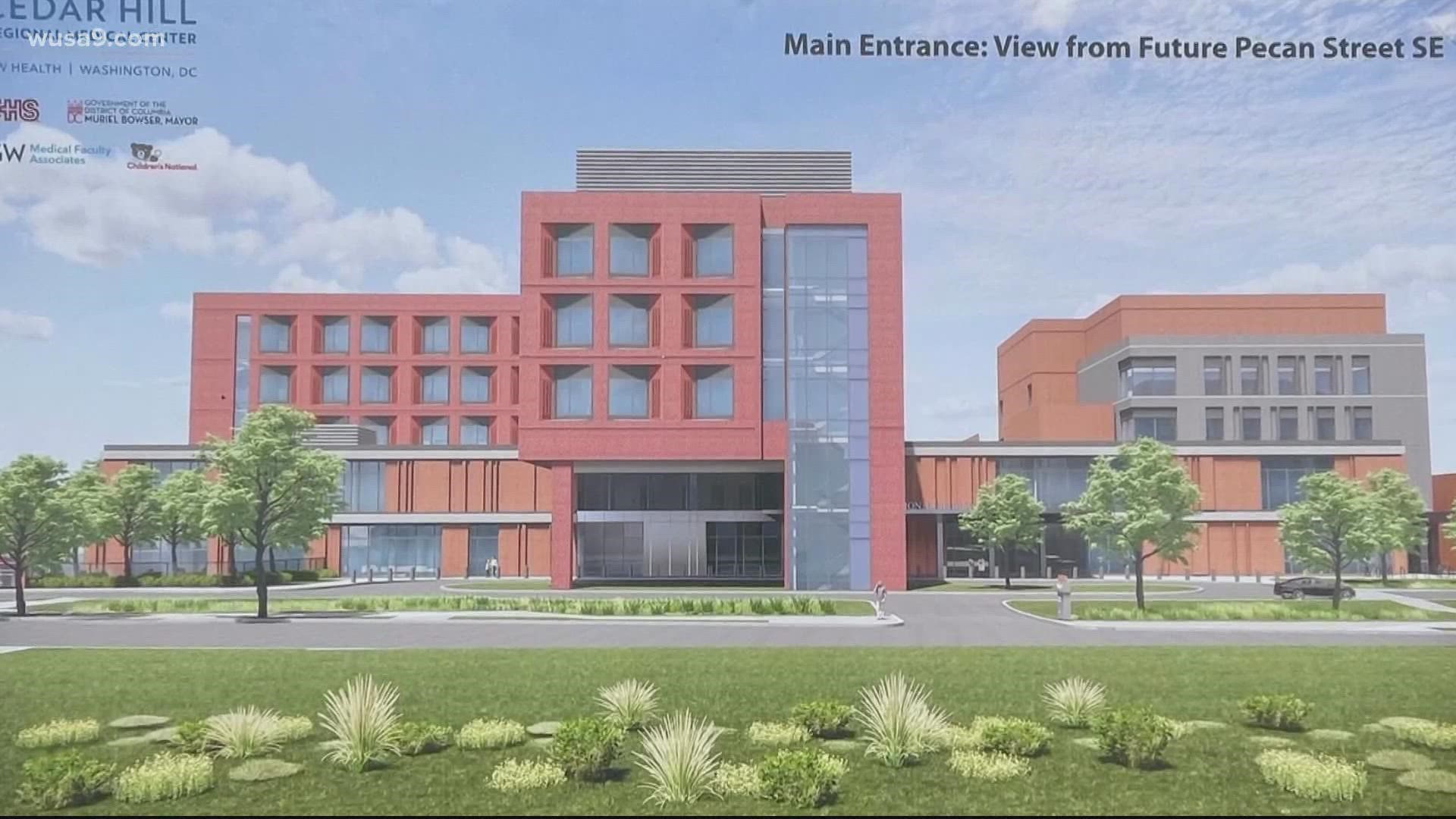WASHINGTON — About two years from now -- D.C. residents in Wards 7 and 8 will finally get a hospital they've been demanding.
City and health officials broke ground on the new Cedar Hill Regional Medical Center, GW Health at St. Elizabeths East in Ward 8 --- The first hospital built in the District in over 20 years.
Named after the estate of abolitionists Frederick Douglass, Cedar Hill Regional Medical Center isn't just a new hospital.
"It is a fresh start for the community," D.C. Mayor Muriel Bowser said.
The new hospital sits at St. Elizabeth's East Campus in Southeast. The $375 million project will have 136 beds with full service, including a level-three trauma center.
"We're going to have neonatal intensive care, we'll have a pediatric emergency room but also access to ambulatory and acute care," said Kimberly Russo, VP of Universal Health Services and CEO, George Washington University Hospital.
It will fulfill a longtime need for better and faster access to treatment and address health equity issued in Wards 7 and 8.
"When you look at a community like ours that's been so affected by [the] disparity of healthcare, to see a hospital, but not just a hospital but continuum of care we're just excited for it coming," said Monica Ray, Congress Heights Community Training and Development Corporation.
The new hospital, which is set to open by the end of 2024 and will replace United Medical Center, where for many years, has been plagued with mismanagement, financial problems and staffing shortages.
D.C. Council already voted to shut down UMC, the only hospital that lacks a trauma center, east of the river. It won't close until Cedar Hill opens.
"We are committed to maintaining staffing to serve the people who are going to United Medical Center," said Mayor Bowser.
But the mayor said the number of patients at UMC is already low. In 2017, UMC shuttered its maternity ward for unsafe practices.
"Right now, women who want to have babies in our ward have nowhere to go so having someplace for quality, maternal care, is invaluable for us," said Ray.
But, Cedar Hill will bring material services back and treat women's health from breast care to fibroid and menstrual disorders. For many residents, the medical center hopes to bring proper care and resources that could rival other hospitals in D.C.
"It's so important that the years of work getting here are going to be delivered to the community," said Mayor Bowser.
Officials expect the first year, Cedar Hill will have 40,000 patients in the emergency room, up to 9,000 outpatient visits and deliver 2,500 babies.

